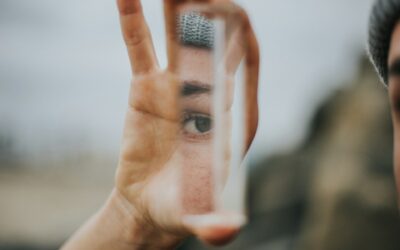Today, the majority of the population has myopia, or nearsighted, meaning that they will need glasses or contact lenses to see clearly far away. This condition is due to a multitude of factors including genetics, time spent outside, amount of near work, and additional intervention. While preventing any amount of nearsightedness is not yet possible, it is possible to reduce the amount of progression or increase in nearsightedness.
Options for this include using special contact lenses that have multiple focusing zones, wearing hard contact lenses overnight to reshape the eye, or using eye drops daily to reduce the focusing of the eyes. Each of these methods has both advantages and disadvantages and should be considered if myopia management is desired.
Why Myopia Management is Needed
As nearsightedness increases, not only are glasses or contact lenses more necessary, there are additional risks for developing eye conditions.
High amounts of myopia can result in retinal detachments, reduced best vision, and early development of cataracts.
These eye conditions are preventable if the myopia is lessened through childhood and the end result is a lower overall amount of myopia.
The only way shown to reduce the end result of myopia is through myopia management techniques.
Multifocal Soft Contact Lenses
Often the easiest method of myopia management is to use special soft contact lenses.
These lenses are daily disposable lenses that are not unlike the typical contact lenses that are often worn.
However, these special lenses are designed to reduce the overworked focusing system in children.
By relaxing the eyes, the lenses are able to prevent an increase in nearsightedness.
Currently, there is only one FDA-approved option for these lenses – known as MiSight lenses from CooperVision.
As technology develops and other lenses are approved, additional options are likely to arise.
Hard Contact Lenses Overnight
A less common option for myopia management is a technique called orthokeratology which uses small, hard contact lenses to reshape the cornea at night.
These lenses are worn while sleeping and removed in the morning so that no glasses or contact lenses are needed throughout the day.
This option takes more specialized fitting of the lenses are must be customized for each child.
Also, if the lenses are not worn at night, vision the next day will not be clear and can cause problems.
Atropine Eye Drops
The only option that does not involve contact lenses, atropine eye drops can be used daily as a method of myopia management.
These eye drops are a very dilute concentration of a dilating eye drop. There is little to no effect on the pupil size but the muscle that focuses the eyes is slightly weakened.
Like soft contact lenses, this allows the system to relax and reduces the progression of nearsightedness.
These eye drops are used daily or twice daily depending on the dosage and concentration.
This is often the best option for younger children who are not yet ready for contact lenses and the increased responsibility from them.
No matter which option is chosen, having a plan in place to prevent myopia from increasing over time is important.





